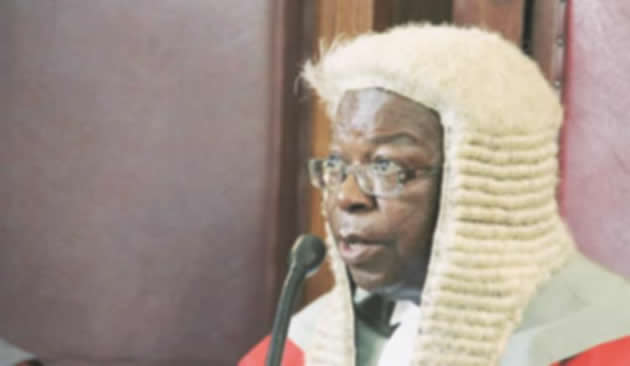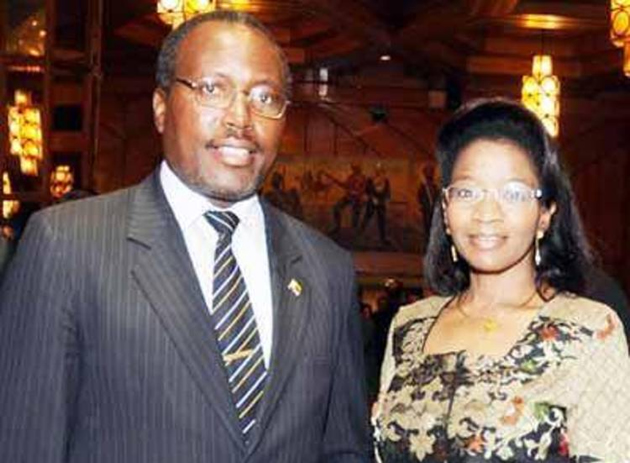Job termination must be impartial, just

While we appreciate that the judiciary’s role is to interpret the law; we are of the view that employers are maliciously and arbitrarily misinterpreting the recent Supreme Court ruling and using it as a license to terminate contracts of employment without giving a fair reason or following laid down procedure as outlined in the Labour Act 28:01.
The law provides for, inter alia: giving effect to the fundamental rights of employees; providing a legal framework within which employees and employers can bargain collectively for the promotion of fair labour standards; promotion of participation by employees in the decisions affecting their interests in the workplace; and securing the just, effective and expeditious resolution of disputes and unfair labour practices.
It’s quite clear in terms of labour’s perspective that the fateful July 17, 2015 Supreme Court Judgment contradicted or failed completely to give due weight to the objects of the Act and therefore to that extent lacks impartiality. In other words, the bench’s interpretation of Section 12 (4) failed to advance social justice and democracy through the promotion of fair labour standards on the subject of termination of employment.
The honourable Supreme Court, in our view as labour, also failed to observe the obligations imposed on it by the Constitution of Zimbabwe Amendment (No 20) Act which clearly stipulates that Section 46 (2) “When interpreting an enactment, and when developing common law, every court, tribunal, forum or body must promote and be guided by the spirit and objectives of this Chapter.”
The objectives of the Constitution as listed therein include democracy, justice, equality, respect for international conventions and treaties among others.
Be this as it may, even the common law itself recognises past practice and convention as sources of law as sources of law.
Past practice in Zimbabwe’s labour jurisprudence is that issues such as terminations are processed through dismissals which are governed by codes of conduct, termination by mutual consent or retrenchments which are processed in terms of retrenchment procedures.
Therefore, the “choice” or “election” by employers to abandon past practice in itself amounts to unfair labour practice.
After all is said and done, labour’s view is that its primary duty to the judiciary to protect and advance the interests and national aspirations of the people of Zimbabwe as they exercise their right over their natural resources, land and labour which is the very essence of Zim-Asset.
The Political, Social and Economic Implications
Labour does not view the Supreme Court Judgment in isolation.
The apparent coincidence of the intensified IMF consultations; the call by both employers and Government for the so-called labour market flexibility; the reduction of civil service; the introduction of the Export Processing Zones and the wildcat terminations of employments soon after the fateful Supreme Court judgment clearly portends a class-driven generalised action by the bourgeoisie against the poor.
The inevitable economic-political crisis points to regime change agenda which in our view is targeted at the Head of State and Government.
Recent developments invite no other conclusions in the minds of all socialist revolutionaries.
Conclusions and way forward
In view of the fact that the fateful Supreme Court judgment did not absolve employers as to their obligations both under the common law past practice principle which require them to engage workers in the collective bargaining systems and structures, and also the international conventions on fair labour standards ratified and domesticated by Zimbabwe, the federation demands that all those employers who have chosen to terminate contracts of employment on notice must rescind the termination letters with immediate effect.
The same employers must engage the affected employees in line with the collective bargaining conventions and statutes.
As for the government of Zimbabwe whose primary role is to create a level playing field for parties to the employment relationship, it must invoke the Presidential Emergency Powers or alternatively the Minister of Labour must use her powers as provided in Section 17 of the Labour Act 2801 in order to stop the madness.
Government must not succumb to pressure from the IMF or even foreign investors.
The failure by Government to act swiftly through the use of the two measures above has already led to uncontrolled madness by the employers whereby to date more than 16 000 employees have been rendered jobless.
This is also working adversely on Government’ vision of protecting current jobs and creating two million jobs as envisioned in the country’s economic blueprint Zim Asset.
Labour is now resolved to resolutely confront those delinquent employers.
Furthermore, we are going to launch a consumer boycott of all products, goods and services by those companies that have been arbitrarily terminating contracts of employment on notice.
The writer is the secretary-general of the Zimbabwe Federation of Trade Unions








Comments